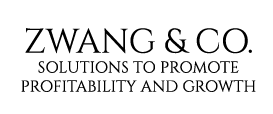Preparing files for printing to a plate or directly to a press, is a crucial part of the printing process. It is one of those steps that has remained a high skilled and fairly siloed process. Today, many companies still manually impose their production files using InDesign or plugins to Adobe Acrobat. Others have an assortment of different imposition software solutions for different press types. Considering most printing companies have an assortment of presses, finishing equipment and product types, having disparate imposition workflows is very inefficient. Not only is it time consuming, but in many printing services facilities the resultant impositions can vary from operator to operator putting additional pressure on the press and finishing operators as well as increasing waste.
There are a lot of imposition solutions available. Some even come pre-packaged into the DFE of a press or a vendors’ production workflow. However, in this changing world of disparate process requirements presses and finishing equipment, printers increasingly need to maintain the flexibility to shift jobs from machine to machine in order to manage their changing schedules. This could be from one digital press to another or offset to digital or continuous feed to cut sheet, etc., just to ensure the delivery schedules are met. Pre-packaged imposition tools in a vendors’ press DFE or workflow software can limit that flexibility.
How do you decide?
Today there are more than 35 different imposition solutions available offering a wide variety of features, so how do you decide? When trying to select an imposition solution, it is important to remember that imposition is one of many interconnected processes in the print production workflow. The ability to share information across all of these processes can provide the most automated, efficient and future proof production platform. An ideal solution must support the agnostic modularity of todays and tomorrows requirements and workflows. In fact, research shows that successful companies across the industry take a much more holistic approach to workflow. By leveraging the value each functional layer from the translation of the customer input to a predictable production process, firms ensure that job information and content is captured accurately and completely before it hits production to enable a more automated workflow. Furthermore, since most print production requires some type of finishing, having an imposition solution that can take that into account and pass along setup instructions to compatible finishing and bindery equipment enhances plant efficiency. The ideal solution would be open, agnostic, smart, easy and automated.
Ultimate Impostrip®
The first agnostic standalone imposition software was introduced at Lasers in Graphics in 1989 by Ultimate Technographics and it was called Ultimate Impostrip®. While it was fairly manual ‘green screen’ solution on a PC, it proved the standalone imposition server concept and began the race to the holy grail of imposition. Ultimate Impostrip® development has continued and come a long way since 1989. Since then, they pioneered the concept of automating, simplifying and streamlining imposition by using the inherent information in a PDF file to help make imposition decisions. To support a more integrated and automated production plant, they added the ability to ingest, share and communicate XML and JDF job information. They further enhanced finishing and bindery automation with enhanced barcodes, XML mapping and connectivity with their Ultimate Bindery software which supports a wide selection of automated finishing equipment.
And they just keep raising the bar. While Ultimate Impostrip® prior to 2019 was focused on ‘page based’ commercial and book printing, Ultimate Impostrip® 2020 has added the ability to handle object nesting including DXF cut files. This opens up all of the power and automation they currently have to sign and display and packaging work. To read Selecting imposition software doesn’t need to be hard – Part 2, click here.







